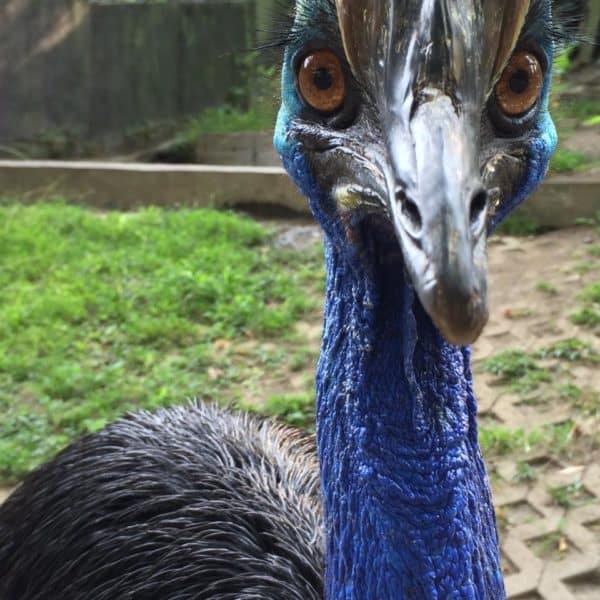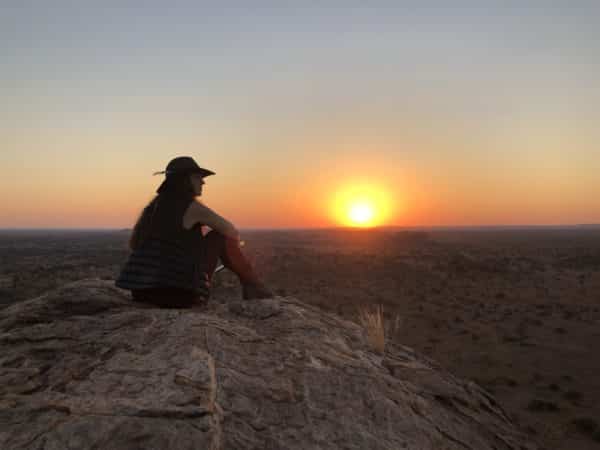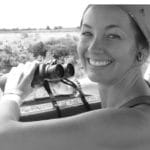“Dooooon’t ruuuuun!” As the words lingered in the thick jungle air, it was as if I was in the middle of an action film that slipped into a dramatic slow-motion scene. Obviously, I was playing the female version of Indiana Jones. The near death moment was a charging prehistoric bird as tall as I was, shifting from gentle curiosity to veraciousness in the blink of an eye. The elusive cassowary has a large casque atop its head, a vibrant blue neck and eye lashes to die for. As stunning as she was, she could disembowel me in mere seconds with her dagger-like claw. If a cassowary chases you, you are supposed to confidently stand your ground and diffuse the territorial tension by putting an item between you and the bird. Luckily for me, a large palm frond seemed to do the trick. Stay calm, be aware of your surroundings, move slowly to safety, and respect the unpredictable in nature.

Twenty years later, this moment and the lessons it taught me as a conservationist, and as a human, seem increasingly relevant and timely. The work we have all so passionately devoted ourselves to requires the ability to constantly pivot with every ‘plot twist’ we are presented. Whether it is a global pandemic, catastrophic disasters, loss of funding and jobs, or compassion fatigue, as a community we are often in a space where we must shape-shift our focus, re-evaluate our profession, and reinvent ourselves to match whatever that latest twist may be. Often, though rarely spoken about it, the impact of this over time can leave us feeling as if we failed ourselves and even the causes we care about.
The thing is, true conservation is really about resiliency, adaptability, and awareness. We often start on a path thinking it will be linear. Get a degree, get another degree (and sometimes even one more); find a job with a university, government agency, nonprofit; launch initiatives, campaigns, films, expeditions; write a book and give a TED talk; get tenure or start your own successful endeavour. End scene.
But what they don’t tell you is that in order to achieve even one of these points along the trajectory, you will have A LOT of plot twists that will leave you wondering if maybe you should have just let the proverbial cassowary put you out of your misery.
Conservation is not a journey for the faint hearted. Yet, we often act as if we aren’t phased by the struggles we endure to follow its calling. Suffering in silence, we don’t talk about the financial strain or expectation that we shouldn’t need a proper salary. After all, we are doing all of this for a good cause. We don’t often share our emotions or heartache when we witness the species we spent decades protecting, vanish from the planet. We stand stoic and strong while our tender egos and pocket books take hit after hit when we don’t get that interview or this funding, or when our profession becomes blurry through drought and uncertainty.

The humanness of our field deserves better. As a community, we must learn to be more vulnerable, open and present for one another. We need to simply hold a space of acceptance and gentle acknowledgement that we are all doing our best to find our way through. This will allow us to lean into our tenderness with compassion and unity rather than judgement and isolation. Bonded by our sheer love of nature, our own strengths will evolve over time and therefore our paths must shift to meet us. Regardless of where that puts us on a perceived or pre-planned professional path, we will be forced to reevaluate and shape shift. Yet, I have learned that our greatest strength and optimism is found through the power of the plot twist.
Wildlife survives because of their ability to hold a razor sharp focus on the present moment, keenly aware of their surroundings; they must constantly shift to meet the changes around them. Similarly, through instinct, survival or surrender, we as conservationists must do the same. And when we do, I hope we do so with kindness, humility and profound curiosity.
While we are at it, let’s throw in a sense of humour and a splash of magic and luck. Truth be told, that day with the cassowary, at first I DID run and I ran FAST. Not that I had a death wish but I was pretty sure “death by cassowary in remote jungle” was a valiant and bad-ass way to go. Thankfully, a friend was there to help and I lived to see another day. That moment forever changed me. Although it was scary as hell, I have never forgotten the beauty of those eyelashes.



